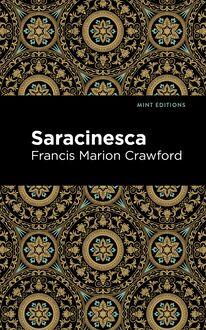-
 Univers
Univers
-
 Ebooks
Ebooks
-
 Livres audio
Livres audio
-
 Presse
Presse
-
 Podcasts
Podcasts
-
 BD
BD
-
 Documents
Documents
-
- Cours
- Révisions
- Ressources pédagogiques
- Sciences de l’éducation
- Manuels scolaires
- Langues
- Travaux de classe
- Annales de BEP
- Etudes supérieures
- Maternelle et primaire
- Fiches de lecture
- Orientation scolaire
- Méthodologie
- Corrigés de devoir
- Annales d’examens et concours
- Annales du bac
- Annales du brevet
- Rapports de stage
La lecture à portée de main
Vous pourrez modifier la taille du texte de cet ouvrage
Découvre YouScribe en t'inscrivant gratuitement
Je m'inscrisDécouvre YouScribe en t'inscrivant gratuitement
Je m'inscrisEn savoir plus
Vous pourrez modifier la taille du texte de cet ouvrage
En savoir plus

Description
Saragossa: A Story of Spanish Valor (1899) is a novel by Benito Pérez Galdós. Published at the height of Pérez Galdós’ career, Saragossa: A Story of Spanish Valor is the sixth in of 46 historical novels in the author’s monumental, career spanning series of National Episodes. Set during the bloody naval battle of Trafalgar in 1805, Pérez Galdós’ novel is a story of heroism, growth, and adventure that manages to find humanity in history. “It was, I believe, the evening of the eighteenth when we saw Saragossa in the distance. As we entered by the Puerta de Sancho we heard the clock in the Torre Nueva strike ten. We were in an extremely pitiful condition as to food and clothing. The long journey we had made […], climbing mountains, fording rivers, making short cuts until we arrived at the high road of Gallur and Alagon, had left us quite used up, worn out, and ill with fatigue.” Having survived the disastrous defeat of the Spanish Armada at Trafalgar by the British Royal Navy, Gabriel de Araceli makes his way to Saragossa. There, he must fight for his life and the future of his nation as the army of Napoleon Bonaparte lays siege to the city. Painstakingly researched by its author, Saragossa: A Story of Spanish Valor is a detailed fictional retelling of one history’s most iconic conflicts. With a beautifully designed cover and professionally typeset manuscript, this edition of Benito Pérez Galdós’s Saragossa: A Story of Spanish Valor is a classic of Spanish literature reimagined for modern readers.
Sujets
Informations
| Publié par | Mint Editions |
| Date de parution | 12 octobre 2021 |
| Nombre de lectures | 0 |
| EAN13 | 9781513213446 |
| Langue | English |
| Poids de l'ouvrage | 1 Mo |
Informations légales : prix de location à la page 0,0500€. Cette information est donnée uniquement à titre indicatif conformément à la législation en vigueur.
Extrait
Saragossa
A Story of Spanish Valor
Benito Pérez Galdós
Saragossa: A Story of Spanish Valor was first published in 1899.
This edition published by Mint Editions 2021.
ISBN 9781513215440 | E-ISBN 9781513213446
Published by Mint Editions®
minteditionbooks.com
Publishing Director: Jennifer Newens
Design & Production: Rachel Lopez Metzger
Project Manager: Micaela Clark
Translated by: Minna Caroline Smith
Typesetting: Westchester Publishing Services
C ONTENTS I II III IV V VI VII VIII IX X XI XII XIII XIV XV XVI XVII XVIII XIX XX XXI XXII XXIII XXIV XXV XXVI XXVII XXVIII XXIX XXX XXXI
I
It was, I believe, the evening of the eighteenth when we saw Saragossa in the distance. As we entered by the Puerta de Sancho we heard the clock in the Torre Nueva strike ten. We were in an extremely pitiful condition as to food and clothing. The long journey we had made from Lerma through Salas de los Infantes, Cervera, Agreda, Tarazona, and Borja, climbing mountains, fording rivers, making short cuts until we arrived at the high road of Gallur and Alagon, had left us quite used up, worn out, and ill with fatigue. In spite of all, the joy of being free sweetened our pain.
We were four who had succeeded in escaping between Lerma and Cogollos by freeing our innocent hands from the rope that bound together so many patriots. On the day of the escape, we could count among the four of us a total capital of eleven reales; but after three days of marching, when we entered the metropolis of Aragon and balanced our mutual cash, our common wealth was found to be a sum total of thirty-one cuartos. We bought some bread at a little place next the Orphanage, and divided it among us.
Don Roque, who was one of the members of our expedition, had good connections in Saragossa, but this was not an hour to present ourselves to anyone. We postponed until the next day this matter of looking up friends; and as we could not go to an inn, we wandered about the city, looking for a shelter where we could pass the night. The market scarcely seemed to offer exactly the comfort and quiet which our tired bodies needed. We visited the leaning tower, and although one of my companions suggested that we should take refuge in the plaza, I thought that we should be quite the same as if altogether in the open country. The place served us, none the less, for temporary refuge and rest, and also as a refectory, where we despatched happily our supper of dry bread, glancing now and then at the great upright mass of the tower, whose inclination made it seem like a giant leaning to see who was running about his feet. By the light of the moon that brick sentinel projected against the sky its huddled and shapeless form, unable to hold itself erect. The clouds were drifting across its top, and the spectator looking from below trembled with dread, imagining that the clouds were quiet and that the tower was moving down upon him. This grotesque structure, under whose feet the overburdened soil has settled, seems to be forever falling, yet never falls.
We passed through the avenue of the Coso again from this house of giants as far as the Seminary. We went through two streets, the Calle Quemada and the Calle del Rincon, both in ruins, as far as the little plaza of San Miguel. From here, passing from alley to alley, and blindly crossing narrow and irregular streets, we found ourselves beside the ruins of the monastery of Santa Engracia, which was blown up by the French at the raising of the first siege. The four of us exclaimed at once in a way to show that we all thought the same thing. Here we had found a shelter, and in some cosy corner under this roof we would pass the night!
The front wall was still standing with its arch of marble, decorated with innumerable figures of saints which seemed undisturbed and tranquil as if they knew nothing of the catastrophe. In the interior we saw broken arches and enormous columns struggling erect from the debris, presenting themselves, darkling and deformed, against the clear light flooding the enclosure, looking like fantastic creatures generated by a delirious imagination. We could see decorations, cornices, spaces, labyrinths, caverns, and a thousand other fanciful architectural designs produced by the ruins in their falling. There were even small rooms opened in the spaces of the walls with an art like that of Nature in forming grottos. The fragments of the altar-piece that had rotted because of the humidity showed through the remains of the vaulting where still hung the chains which had suspended the lamps. Early grasses grew between the cracks of the wood and stone. Among all this destruction there were certain things wholly intact, as some of the pipes of the organ and the grating of the confessional. The roof was one with the floor, and the tower mingled its fragments with those of the tombs below. When we looked upon such a conglomeration of tombs, such a myriad of fragments that had fallen without losing entirely their original form, and such masses of bricks and plaster crumbled like things made of sugar, we could almost believe that the ruins of the building had not yet settled into their final position. The shapeless structure appeared to be palpitating yet from the shock of the explosion.
Don Roque told us that beneath this church there was another one where they worshipped the relics of the holy martyrs of Saragossa; but the entrance to this subterranean sanctuary was closed up. Profound silence reigned, but, penetrating further, we heard human voices proceeding from those mysterious deeps. The first impression produced upon us by hearing these voices was as if the spirits of the famous chroniclers who wrote of the Christian martyrs, and of the patriots sleeping in dust below, were crying out upon us for disturbing their slumbers.
On the instant, in the glare of a flame which illuminated part of the scene, we distinguished a group of persons sheltering themselves, huddling together in a space between two of the fallen columns. They were Saragossa beggars, who had made a palatial shelter for themselves in that place, seeking protection from the rain with beams of wood and with their rags. We also made ourselves as comfortable as might be in another place, and covering ourselves with a blanket and a half, prepared to go to sleep.
Don Roque said to me, “I know Don Jos é de Montoria, one of the richest citizens of Saragossa. We were both born in Mequinenza. We went to school together, and we played our games together on the hills of Corregidor. It is thirty years since I have seen him, but I believe that he will receive us well. Like every good Aragonese, he is all heart. We will find him, fellows; we will see Don Jos é de Montoria. I am of his blood on the maternal side. We will present ourselves to him. We will say—”
But Don Roque was asleep, and I also slept.
II
The place where we lay down did not by any blandishments invite us to sleep luxuriously until morning, and certainly a mattress of broken stones is conducive to early rising. We wakened with the dawn; and as we had to spend no time in making a toilet before a dressing-table, we were soon ready to go out and pay our visits.
The idea came to all four of us at once that it would be a good thing to have some breakfast, but at the same time we agreed unanimously that it was impossible, as we had not the wherewithal to carry out such a high purpose.
“Don’t be discouraged, boys,” said Don Roque; “because very soon I will take you all to the house of my friend, who will take good care of us.”
While he was saying this, we saw emerging from our inn two men and a woman, of those who had been our companions there. They looked as if they were accustomed to sleep in the place. One of them was a cripple, a poor unfortunate who ended at his knees, and put himself in motion by the aid of crutches, swinging himself forward on them as if by oars. He was an old man, with a jovial face well burned by the sun. As he saluted us very pleasantly in passing, wishing us a good-morning, Don Roque asked him in what part of the city was the house of Don Jos é de Montoria. The cripple replied:—
“Don Jos é de Montoria? I know him as if he were the apple of my eye. It is twenty years since he used to live in the Calle de la Albarderia. Afterwards he moved to another street, the Calle de la Parra, then,—but you are strangers, I see.”
“Yes, my good friend, we are strangers; and we have come to enlist with the troops of this brave city.”
“Then you were not here on the fourth of August?”
“No, my friend,” I answered him; “we were not present at that great feat of arms.”
“You did not see the battle of Eras?” asked the beggar, sitting down in front of us.
“We did not have that felicity either.”
“Well, Don Jos é Montoria was there. He was one of those who pulled the cannon into place for firing. Well, well, I see that you haven’t seen a thing. From what part of the world do you come?”
“From Madrid,” said Don Roque. “So you are not able to tell me where my dear friend Don Jos é lives?”
“Well, I should think I can, man, well, I should think I can!” answered the cripple, taking from his pocket a crust of dry bread for his breakfast. “From the Calle de la Parra he moved to the Calle de Enmedio. You know that all those houses were blown up. There was Stephen Lopez, a soldier of the Tenth Company of the First Regiment of Aragon Volunteers, and he alone, with forty men, himself forced the French to retire.”
“That must have been a fine thing to see!” said Don Roque.
“Oh, if you did not see the fourth of August you have seen nothing,” continued the beggar. “I myself also saw the fourth of June, because I was crawling along the Calle de la Paja, and I saw the woman who fired off the big cannon.”
“We have already heard of the heroism of that noble woman,” said Don Roque; “but if you could make up your mind to tell us—”
“Oh, of course. Don Jos é de Montoria is a
-
 Univers
Univers
-
 Ebooks
Ebooks
-
 Livres audio
Livres audio
-
 Presse
Presse
-
 Podcasts
Podcasts
-
 BD
BD
-
 Documents
Documents
-
Jeunesse
-
Littérature
-
Ressources professionnelles
-
Santé et bien-être
-
Savoirs
-
Education
-
Loisirs et hobbies
-
Art, musique et cinéma
-
Actualité et débat de société
-
Jeunesse
-
Littérature
-
Ressources professionnelles
-
Santé et bien-être
-
Savoirs
-
Education
-
Loisirs et hobbies
-
Art, musique et cinéma
-
Actualité et débat de société
-
Actualités
-
Lifestyle
-
Presse jeunesse
-
Presse professionnelle
-
Pratique
-
Presse sportive
-
Presse internationale
-
Culture & Médias
-
Action et Aventures
-
Science-fiction et Fantasy
-
Société
-
Jeunesse
-
Littérature
-
Ressources professionnelles
-
Santé et bien-être
-
Savoirs
-
Education
-
Loisirs et hobbies
-
Art, musique et cinéma
-
Actualité et débat de société
- Cours
- Révisions
- Ressources pédagogiques
- Sciences de l’éducation
- Manuels scolaires
- Langues
- Travaux de classe
- Annales de BEP
- Etudes supérieures
- Maternelle et primaire
- Fiches de lecture
- Orientation scolaire
- Méthodologie
- Corrigés de devoir
- Annales d’examens et concours
- Annales du bac
- Annales du brevet
- Rapports de stage




















